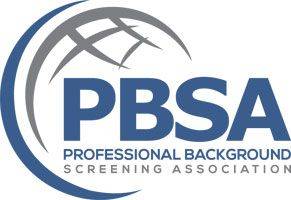
Overview
For many businesses, background screening is an imperative part of the hiring process. Employers and background screening companies must uncover any disqualifying issues, including certain criminal convictions, while complying with seemingly simple yet highly technical, non-intuitive federal, state, and local requirements protecting applicants. Huge traps await the unwary. Whether you’re an employer who must decide whether and how to use a background report, or a background screening company charged with providing accurate reports, Fisher Phillips’ experienced lawyers can help you comply with the law and, when necessary, defend against any claims.
We’ll work with you to examine organizational procedures and avert potential pitfalls. Our nationally recognized team of litigators will help you achieve positive, cost-effective results when fighting individual and class action claims under the Fair Credit Reporting Act (FCRA) or state laws, as well as regulatory enforcement actions from the Consumer Financial Protection Bureau (CFPB), Equal Employment Opportunity Commission (EEOC), or other federal, state and local agencies that can seriously disrupt your business. And we’ll guide you on the FCRA’s impact on business models and new product offerings. Our agile, flexible team provides employers and Consumer Reporting Agencies (CRAs) alike with practical solutions that get results.
FOR EMPLOYERS: BACKGROUND CHECKS
Our team helps employers of every size and industry to navigate the maze of laws controlling how they can conduct background investigations and act on their findings.
While employers often perform background checks on prospective and, in some cases, current employees and independent contractors, the FCRA imposes specific duties on employers before ordering a background screening report. And it imposes additional duties after the receipt of such reports when they may become a factor in disqualifying an applicant from employment. Federal and state discrimination statutes may also impact the use of background reports, as do local laws designed to offer additional protections to applicants. Care must be taken at every step not to violate local, state, federal, and international laws limiting the collection, processing, and use of criminal records, credit information and other data contained in background screening reports.
The FCRA’s complex requirements have spawned waves of litigation. Notably, a cottage industry of class action lawsuits has arisen because even large, sophisticated businesses often fail to make the requisite and specifically compliant “disclosures” before beginning background checks, or to properly notify applicants and employees before making employment decisions based on the reports. All the while, more and more states and municipalities are enacting “Ban the Box” laws that restrict inquiries into criminal convictions and limit their use in employment decisions.
How We Can Help
- You are beginning operations or are uncertain whether your existing background screening process meets the requirements of the FCRA.
We can provide background screening instructions and forms to help maximize compliance with complex, rapidly evolving case law. In addition to providing guidance from a federal perspective, our team can also provide state and local guidance identifying and synopsizing key issues you face when implementing an effective and compliant background screening program for applicants, employees, and independent contractors.
- You have just heard some of your operations are in cities that have implemented “ban the box” or restrictions on the use of criminal records in hiring and employment decisions.
Our team can help you structure compliant applications and develop procedures to legally consider and use criminal background checks in the locations you do business.
- You’ve been sued by a failed applicant, seeking to represent a companywide class of applicants and employees because of an allegedly defective “disclosure.”
Our team of litigators and class action specialists can leverage their extensive experience to defend against these claims while minimizing the disruption to your business.
Consumer reporting agencies (CRAs) – including companies that provide background screening services – are subject to lawsuits in state and federal courts as well as regulatory review by administrative agencies. Public records sources often limit the disclosure of personal identifiers available on their records, yet the slightest “inaccuracy” in a background screening report creates a litigation risk. Additionally, disparate laws relating to the reporting of deferred dispositions and alternative adjudications add to the difficulties at the state level, as well as under the FCRA.
Our team has deep, real-world experience with the limitations and risks CRAs face and extensive knowledge of the guidance emanating from the CFPB and courts across the country. We’ll give practical, effective advice tailored to create compliant new procedures and strengthen existing ones, while recognizing that you operate in an imperfect world creating obstacles to compliance and accuracy.
How We Can Help
- You know you’ve got to do better in screening your client’s job candidates but can’t get a handle on everything you need to do.
We’ll help you develop strategies covering the entire life of a background screening report, from the use of public record researchers to delivering the consumer report. This includes mining and using dispute data, as well as leveraging best practices outlined by the CFPB and federal courts on reasonable procedures aimed at enhancing accuracy while strengthening defenses to inevitable claims by private litigants.
-
You try to do everything right but are overwhelmed with requirements. You’re not even sure you know about all of them.
Our team will guide you through and put you on the right side of the FCRA’s statutory thicket governing consumer reports, including:
-
- Ensuring reports are issued for permissible purposes
- Ensuring a report’s contents do not contain prohibited information
- Preventing disclosure of obsolete, adverse information
- Creating reasonable procedures to assure privacy and accuracy
- Handling consumer disputes
- Complying with additional obligations that come with reselling consumer reports obtained from other CRAs
-
- You’ve been sued by the subject of a report alleging that they weren’t hired because their background reports contained incorrect, misleading, or outdated information about their criminal histories or contained information that was prohibited from being disclosed.
Our team can leverage extensive experience to defend against these claims and develop a strategy aimed at effectively and efficiently resolving the lawsuit while minimizing the disruption to your business. We can also help analyze the risks identified by the lawsuit and, where appropriate, provide guidance on how to strengthen processes and procedures moving forward.
- You’ve been sued by a group of employees stemming from a service you provide to your client-employers to assist with their legal obligations that do not apply to your own organization. So why are you being sued for simply helping your clients comply with their obligations?
Not only can our team defend you in this context, but from client contracts to communication strategies to platform development, we can help you on the front-end to strengthen potential defenses and minimize the risks associated with these types of user-based claims.
Key Contacts
-
- Spencer W. Waldron
- Partner
-
- James Patrick
- Partner
- See all
Member


